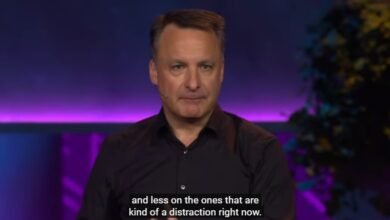
By | Gary Bury
Hiring is a complex process and it’s important to get the right staff on board skills-, experience- and personality-wise. Whether you have an HR department to find your ideal team member, or you take on the responsibility of choosing candidates yourself, after sifting through the stack of CVs to draw up your shortlist, you then have to decide on the format of the interview. Will it be in a traditional face-to-face format, or some other means such as telephone or video?
Getting from placing the job ad to the interview stage is a job in itself. CVs and application forms are an efficient way to draw up your shortlist, discounting those without the required qualifications or experience. You can even delve deeper into candidates’ suitability by taking a look at their social media profiles to get a rough idea if their values match your own. For example, if you’re a health and fitness company and a potential employee’s social media channels show them drinking, smoking and living on takeaways, it wouldn’t be unreasonable to wonder if they are a good match.
So, when the application deadline has passed, you’ve whittled down the pile of CVs, leaving you with your list of potential employees, do you then invite the candidates to meet you face-to-face before deciding who gets the job, or do you use other means to get to know them better?
There’s no right or wrong way to interview for a position, and what’s best for you will depend on the industry you’re in and the role you’re recruiting for – for example, if the role is remote-based, personality may not be a key factor when recruiting as opposed to recruiting for an office-based team role. Of course, in the current Covid-19 climate, face-to-face interviews are only being conducted if strictly necessary and can be undertaken while adhering to local or nationwide social-distancing guidelines.
Bearing all this in mind, let’s have a look at the pros and cons of interviewing via telephone and video.
Telephone interviews

Pros:
If you’ve got a long list of candidates that look good on paper you want to whittle down to the strongest candidates, then the telephone’s an efficient way of doing this. This is particularly true if your candidate lives far from the office. After all, if you only need a brief chat to ask a few questions, is it really worth their time and yours setting up a face to face meeting? A phone call will save the candidate time and money and the recruiter doesn’t have to leave their desk. Also, a phone call is much easier to schedule into a busy day and if the candidate is already working full-time, they won’t need to come up with an excuse for taking time off from their current position.
Cons:
It’s difficult to build a rapport over the phone and, with the absence of body-language, you won’t get to properly gauge a candidate’s personality. Also, the most enthusiastic, capable and confident people can become nervous when faced with having to make a phone call. In this world of text, email and messaging, phone calls aren’t the go-to communication tool they once were and with that, comfort with using the phone has waned. If the candidate isn’t comfortable using the phone, they won’t be at their best.
Video interviews

Pros:
Just like the telephone interview, an advantage of a video interview is the time and money saving in travel. It doesn’t matter where in the world your candidate is, you can hook up by video link whether that’s Skype, Zoom or a Google Hangout.
You’ll be able to see each other and make it a more personal experience than a telephone interview, building up more of a rapport and gauging the candidate’s body language.
Cons:
Although you can see each other, it’s not as natural as actually sitting opposite each other in the same room. Most people stare at the screen and not the camera, so there won’t be any eye-contact and body language is difficult to interpret on-screen. Indeed, seeing themselves on a screen can make people feel self-conscious and their passion and enthusiasm for the role may not come across as well as they’d like it to.
There may also be technical problems with a video call – screen freezing, audio cutting out, and so on.
Taking the above into consideration, you may feel a telephone or video interview serves your needs well. If the role is a remote one, their personality may not have much bearing on the role and it’ll be their skills, knowledge and experience that matter the most. If they’re going to be part of a team though, remote interviews may not give you the best overview of whether their personality and temperament is going to fit in with the rest of the team.
About the author:
Gary Bury is co-founder and CEO of Timetastic, an independent and profitable web app for managing time off work, used by thousands of companies around the world.






